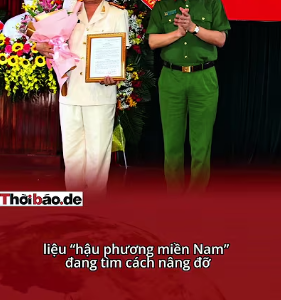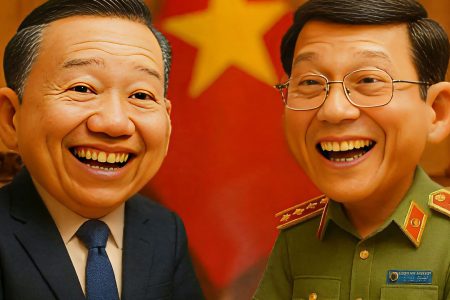
Vietnamese Grade 1 textbook of the Canh Dieu group is currently facing fierce criticism from the online community for “errors” content. How serious are these errors? Is there any measure to deal with when the book has been taught?
Talking to BBC News Vietnamese, translator and researcher Nguyen Viet Long said that the Canh Dieu set has a few „incomplete“ places, but not to the point of “anti-educational” or “vulgar” and others like online comments, there are even many innovations to increase children’s vocabulary and reading time, especially with the support of picture and videos as well as and teachers.
Mr. Long told the BBC:
„I see in general there are three main criticisms on social media: the use of the word rough and vulgar words, using dialect instead of the national standard word; the division of fables (part 1, part 2) easily misleading; the allegory was edited to the point of „lack of logic, objection, lack of humanity.“
„When I first read these criticisms, I find it very plausible, even to cause aggression. But in fact, very few people have mentioned the professional and pedagogical aspects of the above issues but mainly deduce, even fabricate, to attack book writers and appraisers, and even attack their descendants online.“‚
Outrage on social networks

Controversial
The online comments mainly suggest that the textbook uses many dialects instead of the standard language. For example, “no/không replaced by “chả,” “gà con/chick” becomes “gà nhép,” “ăn/eat” becomes “nhá” or words that are considered unfamiliar to young children such as bean sprouts, crayfish, milkfish, grouse, yang, giant umbrella, …
In addition, the online community is also resentful that some readings are adapted from the fables of famous authors, but there are a lot of changes, content undercuts, or changes of the characters which lead to losing the education. For example the story “chickens and ants” changed to “chickens and ticks,” and “crows and foxes” to “crows and dogs,” etc.
Many angry comments that the book compilation team, in which Professor Nguyen Minh Thuyet is the editor, and the book appraisal committee, all “shut up to eat money.“
Why lead to controversy?

According to researcher Nguyen Viet Long, because students must ensure that students finish reading early in order to have time to learn other knowledge, the first-grade Vietnamese book Canh Dieu has included many stories from the first lessons. Unlike the old Vietnamese books, which mainly teach spelling, there are only one or two stories at the end of the book.
Because of having to teach students to read stories early while not fully learning the rhymes, book writers are in a “stuck” position: They have to correct and force words to ensure that they do not include words with uneducated rhymes.
That is the reason why in lesson 1, there is a controversial word “chả” that contains “a” instead of the word “ông” that rhymes “grandfather” until lesson 85 is learned. Lesson 33 has the word “chew” instead of “eat” and contains “eat” rhymes until lesson 58 is new.
Writer Phan Ho Diep, from the perspective of the person who wrote a book for grade 1 students, also shares this idea.
„Because of that principle, the writer of the book must set up a „matrix“ to choose the correct language/word containing the rhymes that the child has learned …. leading to forced sentences, the paragraphs that you think are naive,“ Mrs. Diep wrote on her personal Facebook.
Regarding words that are considered “vulgar” like “chả,” “tợp” and “cuỗm,” researcher Nguyen Viet Long disagrees. „They can be blatant rhetoric used with peers. They cannot distort a student’s character, especially when there is an instructor to use,“ he said.
„In everyday life, many of these words still appear normal, or in proverbs, like grandma chewing / chewing rice for you, I don’t know, Who knows, ghosts eat them …“
Mr. Long added: „Some other words were criticized as local dialects, the authors said they were from Tran Dang Khoa’s poetry. The crow calls for “quà quà” instead of quạ quạ from Ma Văn Khang’s work. I think that from onomatopoeia, “gift” or “quà quà” is based on the subjective perception of each person and the content to be directed towards the story.“
„Many words are criticized as a foreign dialect for students such as bean sprouts, crayfish, milkfish, grouse, yang, giant umbrellas… in fact, the words are quite popular or are official name of a species of tree or fish, there is not even an alternative word.“
„Or abstain from“ shady hibiscus,“ assuming it must be“ hibiscus,“ while the Vietnamese dictionary says „shady hibiscus. In my opinion, this seems like plucking the hair for traces. If you know or can’t look up these words, you should do something else. Not to say the book writer’s motto is to provide some relatively common local words (in the Vietnamese dictionary) for students.“
„Many local words are very popular, in Vietnamese dictionary or names of animals and plants, so they should learn, if parents do not know, their children cannot or do not need to know. And besides words, there are channels. pictures and teachers to help students understand the correct words and usage.“
„There is a barrier to the introduction of fables in the book that the content often exceeds the number of words and lines allowed in each lesson, so it has to be edited in the form of“ adaptations,“ retell,“ sometimes divided into two lessons, part one, part two.“
„This place is also very controversial, some people do not accept it, saying that cutting the paragraph like that causes misunderstandings about meaning, spoils students, is to teach cheeky speech, to cheat, to be insolent. Here, students do not study by themselves with books, but there is always an instructor to correctly understand the other lesson! „
However, researcher Nguyen Viet Long also pointed out the places he called “errors,” “lack of logic,” and “need to be edited” in the book.
He said that with the fable, when editing, it is necessary to comply with what is in accordance with nature and ancient correct conceptions of animals.
For example, the fox represents cunningness. If replacing with a dog is an animal that is friends with humans, it is not advisable. Or replace ants with ticks, the character relationship has changed. Because chickens will eat ticks right away and no friendly talk.
Some are not very standard or somewhat confusing, like the story “Ticks and chickens.” Sticks said “give something to go” sounds very confusing. Even so, in a conversation situation, it is acceptable. The book has a picture of the leaf and the previous sentences help to understand better.
According to Mr. Long, under the pressure of public opinion, the next book compilation team will fix some „errors“ places, but not to the extent of having to withdraw.
Lonely opinions
In addition to the anger of the online community, there are still opinions that are considered “isolated” when defending the book series.
Dr. Tran Van Phuc – who has an account of more than 56,000 followers on Facebook – said „this is a good book.“ He wrote:
„Regarding the idea that the book distorts the original stories, I disagree, this is like the fun-filled students who like to ‘make’ a song like ‘We can’t boil vegetables’ which singer Son Tung previously covered from the song ‘We don’t talk anymore’ to become a famous hit.“
„Regarding the opinion that local words, words are not suitable; I personally do not think so. Obviously, the number of Vietnamese words is very limited, so the inclusion of local words only makes the vocabulary only get richer, not to mention the use of words in the book is quite new to create the story’s appeal.“
Researcher Nguyen Viet Long also has some opinions in favor of the book.
Mr. Long said that many people are “nostalgic,” wanting to reuse the old Vietnamese books with beautiful poems and full of morality. „But actually the memory is not completely loyal to them,“ because in fact the old Vietnamese book mainly learned rhyme (in volume one of 83 articles), without having a complete story.
While the book of TV Canh Dieu, with the renewed intention of the authors: help students learn to read and write faster, diversify vocabulary, closer to life, not encapsulated in a few sentences of three sentences describing scenes romance, the meaning is always smooth in formality and custom, right from the beginning of the book (lesson 3), there is a listening page for stories that does not depend on rhyme learning, and then there is a story like that every few times.
Writer Phan Ho Diep, after clarifying the book series, is that it is necessary to comply with many principles leading to many words lacking beauty and humanity,” quoted Nguyen Tran Bat’s Dialogue with the Future:
„I think that educational reform is to organize a series of rational technologies and organize a reasonable attitude. The rational and technologically reasonable attitude for us today is to pick up and throw away one in a very quiet way all the irrational elements of existing education, and quietly put in their new ones.“
„All taking out and putting in there must ensure the tranquility of education, not disturb the psychology of teachers and students.“
Thoibao.de (Translated)


























